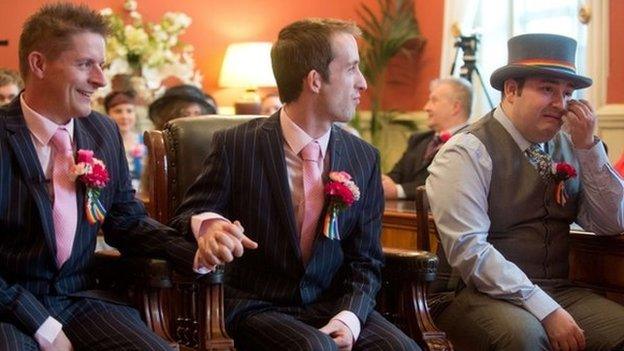Gay wedding canon Jeremy Pemberton has NHS job offer withdrawn
- Published
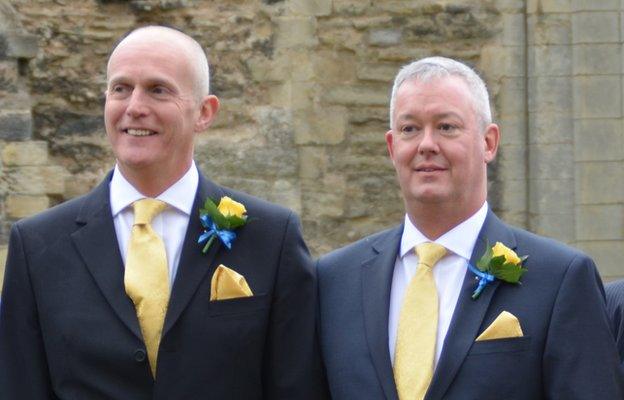
Laurence Cunnington and Jeremy Pemberton married in a civil ceremony
The first gay British clergyman to marry a same-sex partner has had an NHS job offer withdrawn because a bishop will not give the licence needed.
Jeremy Pemberton currently works as an NHS chaplain in Lincolnshire, but has been blocked from taking a new job with the NHS in Nottinghamshire.
He was also told he could not work as a priest in Nottinghamshire after he married his partner in April.
His case was raised in the House of Lords earlier this week.
Mr Pemberton told BBC Radio Nottingham he was "very, very disappointed" not to be able to take up the post of chaplaincy and bereavement manager for Sherwood Forest Hospitals NHS Foundation Trust after the offer was withdrawn on Friday.
'Treated inconsistently'
"I've now been treated, I think, in an unfair and rather harsh way in Southwell and Nottingham, whereas I'm now going to carry on doing the job I have been doing in Lincolnshire where I have a licence," he said.
"So I've been treated in an inconsistent way, and the House of Bishops can't agree amongst themselves what ought to be the processes that somebody who enters a same-sex marriage should go through."
NHS chaplains are funded by the NHS rather than the Church of England, but a chaplain needs a licence from the relevant diocese.
The Acting Bishop for Southwell and Nottingham, the Rt Revd Richard Inwood, revoked Mr Pemberton's permission to officiate as a priest in June and wrote to the trust in July saying he would not give Mr Pemberton a licence for the new job.
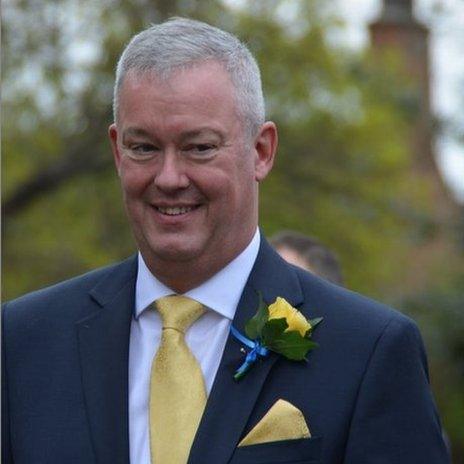
Jeremy Pemberton can still work as a chaplain in Lincolnshire
The trust said it was considering its response after receiving the bishop's letter on 7 July, then withdrew the job offer on 1 August.
Mr Pemberton said: "I think the problem now is that it appears that I'm stuck in the job I'm doing, and if I try to move I could be blocked.
"There are, to be honest, quite a lot of gay and lesbian Church of England chaplains working in the health service.
"Now we don't know, if any of them try to move, will the same thing happen to them, and should it?"
He said he did not know this would happen when he married his partner.
"I didn't, and neither did the House of Bishops, appear to know what would happen," he said.
"As soon as they put their pastoral guidance out that very obvious question was asked of them, and the bishops said, 'Oh no, we don't know, we will have to take it on a case-by-case basis.'
"I'm not going to bow out gracefully and take a low profile.
"I think this needs to be tested [legally] and I think in due course it probably will be somewhere."
- Published30 July 2014
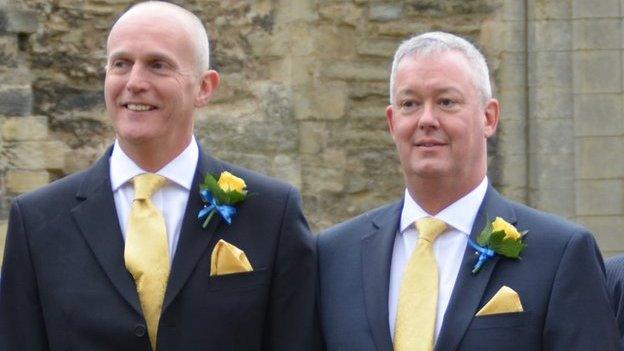
- Published13 July 2014
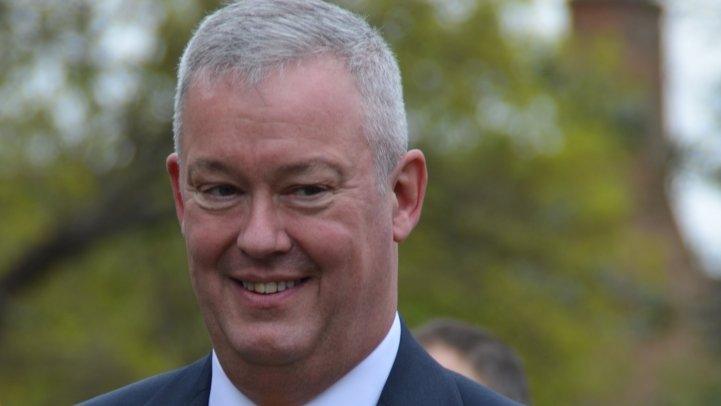
- Published10 July 2014
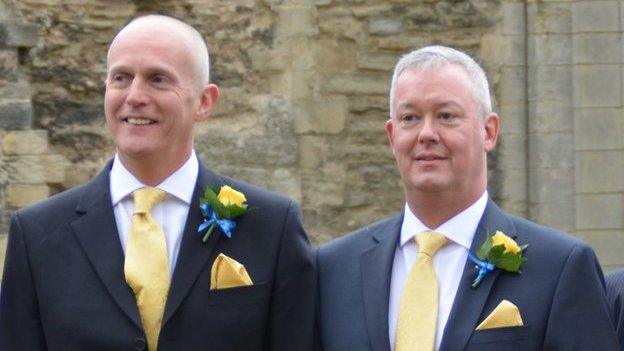
- Published22 June 2014
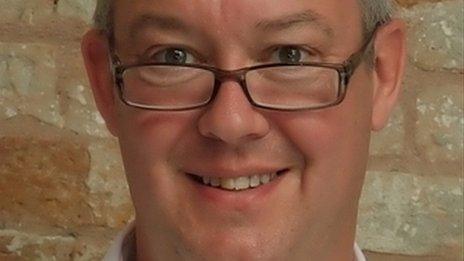
- Published13 April 2014

- Published4 April 2014
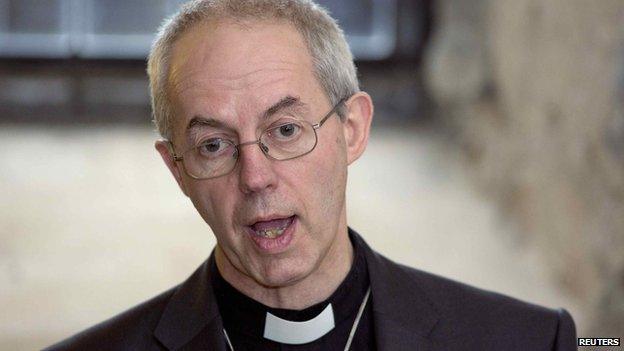
- Published29 March 2014
